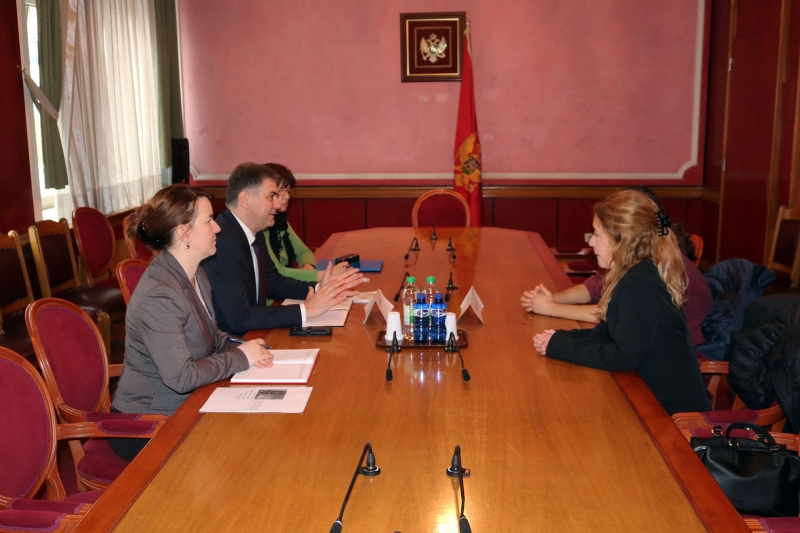Chairperson of the Committee on Tourism, Agriculture, Ecology and Spatial Planning Mr Petar Ivanović has met with President of the Society for the Protection of Animals “Galop” Mr Dušan Pajović.
The President of the Society informed the Chairperson of the Committee about the campaign aimed at legally banning fur farms in Montenegro, which will be led in cooperation with “PETA Deutschland” organisation. He said that a large number of states, both in Europe and the region, had banned fur farms, and there was concern that the existing farms would move to Montenegro. He pointed out that, according to the available data, the fur industry was the fifth largest ecological polluter in the world. He also said that there were activities planned for the purpose of informing the public on the negative effects and unethical aspects of breeding animals for fur.
Ms Maida Šabeta, a representative of “PETA Deutchland”, said that, in the region, the Republic of Serbia had the most advanced legislation in this area. She also cited examples of comparative practice of the EU member states, citing examples of the Netherlands, Germany and Switzerland, as well as the negative experience of Poland. She also pointed out economic consequences of not banning fur farms. She also spoke about the threatening ecological pollution and eco-system disbalance due to the introduction of invasive species.
Chairperson of the Committee Mr Petar Ivanović emphasised that the trend of moving fur farms from states where they were prohibited should be illustrated in relevant sources and, in the upcoming period, an overview of comparative legislation should be prepared, containing explicit provisions prohibiting not only the importing, but also the breeding of furry animals. He proposed that, after the Committee received data on the said sources, it should consider the possibility of holding a consultative hearing with the representatives of the line ministry and other state authorities in charge of food safety, veterinary and phytosanitary affairs.












